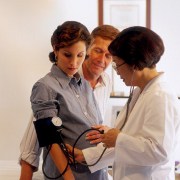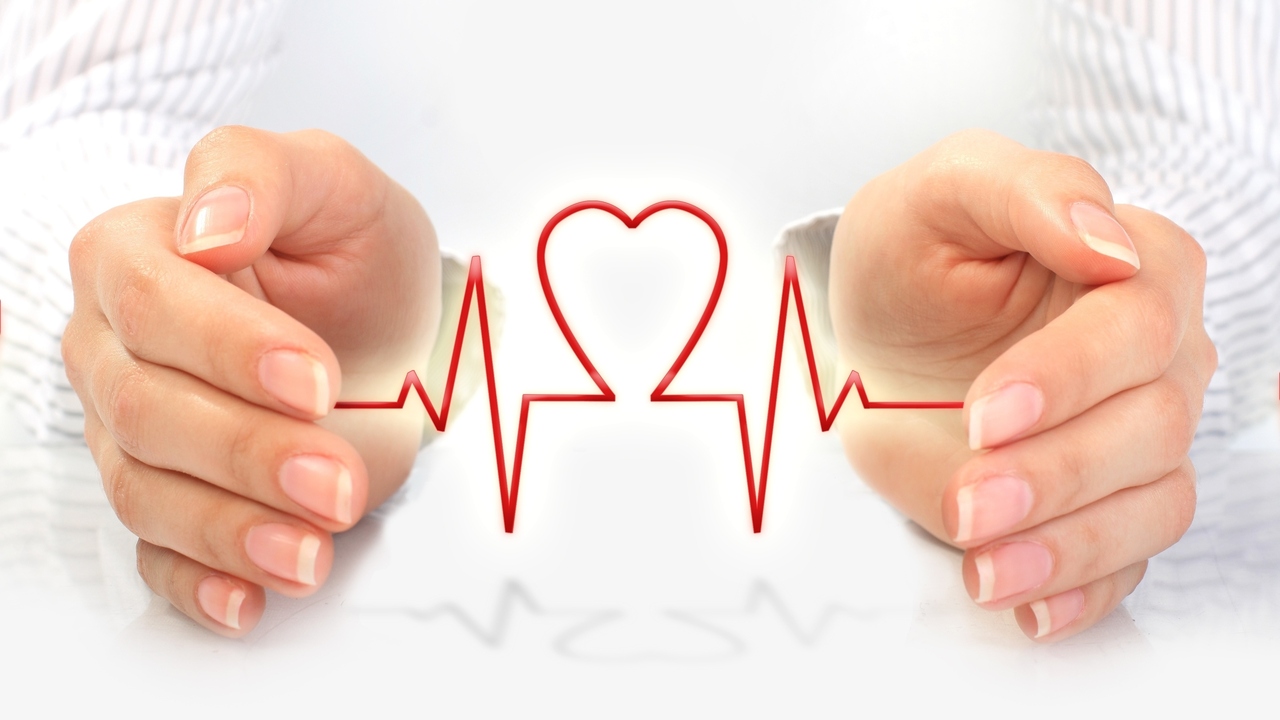 Photo: Getty Images
Photo: Getty Images
You make a routine visit to the doctor for a general check-up. You have been feeling fatigued for a couple of months and have been suffering from more than a couple of episodes of headaches during this time. The doctor checks your blood pressure and tells you that you are hypertensive or have high blood pressure. Usually, mild to moderate levels of hypertension goes undetected as it is asymptomatic.
However, if the blood pressure is touching upon dangerous levels you may experience any or a combination of these symptoms:
1. You may feel dizzy
2. Your nose may bleed
3. You may notice a partial paralysis of facial muscles
4. You may experience the onset of a sharp headache
5. You may experience fatigue
6. You may hear buzzing in the ear
7. You might feel confused
8. You may be disturbed by the irregular heartbeats
9. You could have visual distortions
10. You may have Nausea
11. You may experience shortness of breath
12. You might sweat excessively in relation to the physical/activity levels at that time
13. You may experience chest pain
What exactly does having high blood pressure mean?
Blood pressure is defined as the pressure exerted by blood as a fluid on the walls of the arteries that carry it every time the heart pumps out pure, oxygenated blood to the whole body. High blood pressure is a condition when the pressure exerted by blood on the walls of the arteries it flows through is high. The pressure it exerts on the artery walls may be high due to:
1. Renal (kidney) infections
2. High intake of dietary salt
3. Congenital defects in the anatomy (structure) of the arteries
4. Intake of certain medications such as birth control pills, corticosteroids, migraine medications, appetite suppressants and flu medications
5. Drug abuse
6. Growth in the adrenal glands
7. High cholesterol condition
8. Conditions of the nervous system
9. Imbalance of bodily hormones
10. Usage of tobacco and tobacco products
11. Alcohol abuse
12. Belonging to certain ethnic race
13. Having a nervous and anxious temperament
14. Having a family history of high blood pressure
15. Suffering from atherosclerosis or stiffening of arteries due to plaque deposition
16. Suffering from auto-immune disorders such as periarteritis nodosa
17. Being pregnant or undergoing menopause
18. Having a sedate lifestyle – one that does not involve much physical activity
19. Excessive usage of caffeine
What tests would confirm that I have hypertension?
1. An initial diagnosis is made by the doctor when he measures your blood pressure using a sphygmomanometer. It is the device that you see often at the doctor’s table. It has an inflatable cuff to restrict blood flow on your upper arm, and a mercury or mechanical manometer to measure the pressure. It is always used in conjunction with a means to determine at what pressure blood flow is just starting, and at what pressure it is unimpeded. Sometimes it is used in conjunction with the stethoscope. Once the doctor observes the high reading, he will suggest other tests to make a confirmation.
Blood pressure is measured in mm (millimetre) of Hg (Mercury) units and is represented as a numerator over denominator (ratio). The numerator is also known as systolic pressure or the pressure that your blood applies on the arterial wall when it is pumped out of the heart to the rest of the body. The denominator is known as diastolic pressure and signifies the pressure in your arteries between two beats.
Normal blood pressure readings – between 120/80 mm Hg and 115/75 mm Hg
Pre-hypertensive readings – between 120/80 mm Hg and 139/89 mm Hg
Stage 1 hypertension – between 140/90 mm Hg and 159/99 mm Hg
Stage 2 hypertension – values above 160 mm Hg for systolic reading or values over 100 mm Hg for diastolic reading.
Tests will be carried out over a week. They also aim to find the underlying reason behind the hypertensive condition. Some tests are mentioned below: (Source: Pateints.co.uk; Article Title: High Blood Pressure (Hypertension); URL: http://www.patient.co.uk/health/High-Blood-Pressure-(Hypertension).htm)
2. Blood tests may be carried out to check for kidney and pancreatic function to determine potential underlying metabolic causes such as blood glucose levels (for diabetes) and blood cholesterol levels. Testing for blood cholesterol levels has been given in detail in the HERArticle "Cholesterol – The What, Why and Screening." Blood tests will also indicate an increase in adrenaline levels if it is resulting from malfunctioning adrenal glands.
3. Echocardiogram and electrocardiogram may be carried out to see the damage if any was caused to the heart by the high blood pressure or if there are any blocked arteries or other coronary conditions. This gives your doctor clues on rate, rhythm and orientation/placement of the heart, thickness of the heart muscles, and abnormal patterns of electric activity. (Source: MedicineNet.com; Article Title: ‘Electrocardiogram (ECG or EKG)’; Author: Daniel Lee Kulick, M.D.; URL: http://www.medicinenet.com/electrocardiogram_ecg_or_ekg/article.htm)
4. Urinalysis may be done to check for liver or kidney diseases as well as traces of blood or protein in the urine sample. Urine analysis also helps to check for excessive amounts of adrenaline being released by the adrenal gland if it has a tumor in it. This causes the BP to rise.
5. Ultrasound of the kidneys is also recommended. Kidney tests are used to check for proteinuria, blood urea nitrogen and/or creatinine.
6. Endocrine-related tests such as running a serum-sodium, potassium, calcium, TSH (thyroid-stimulating hormone) test to see if hormonal imbalances are causing the rise in blood pressure.
INFORMATION IN THIS ARTICLE IS NOT MEDICAL ADVICE. ALL INFORMATION GIVEN IS TO BE CHECKED WITH YOUR DOCTOR BEFORE IMPLEMENTING OR TAKING THEM AS STANDARD OR VERIFIED.
Mamta Singh is a published author of the books Migraines for the Informed Woman (Publisher: Rupa & Co. URL: http://www.amazon.com/Migraines-Informed-Woman-Tips-Sufferer/dp/8129115174/ref=sr_1_2?ie=UTF8&s=books&qid=1298990756&sr=1-2), the upcoming Rev Up Your Life! (Publisher: Hay House India) and Mentor Your Mind (Publisher: Sterling Publishers). She is also a seasoned business, creative and academic writer. She is a certified fitness instructor, personal trainer & sports nutritionist through IFA, Florida USA. Mamta is an NCFE-certified Holistic Health Therapist SAC Dip U.K. She is the lead writer and holds Expert Author status in many well-received health, fitness and nutrition sites. She runs her own popular blogs on migraines in women and holistic health. Mamta holds a double Master's Degree in Commerce and Business. She is a registered practitioner with the UN recognised Art of Living Foundation.






Add a CommentComments
There are no comments yet. Be the first one and get the conversation started!